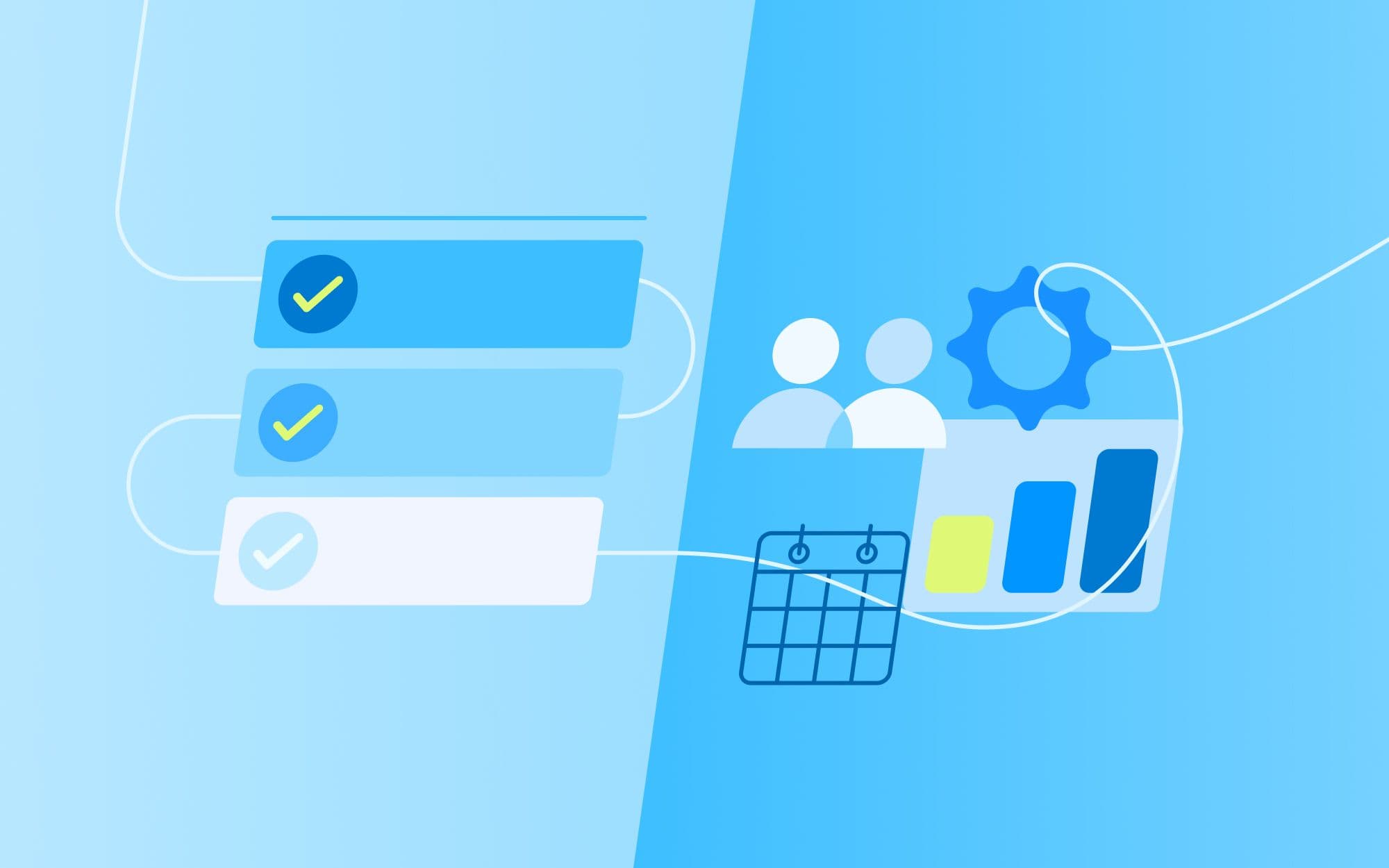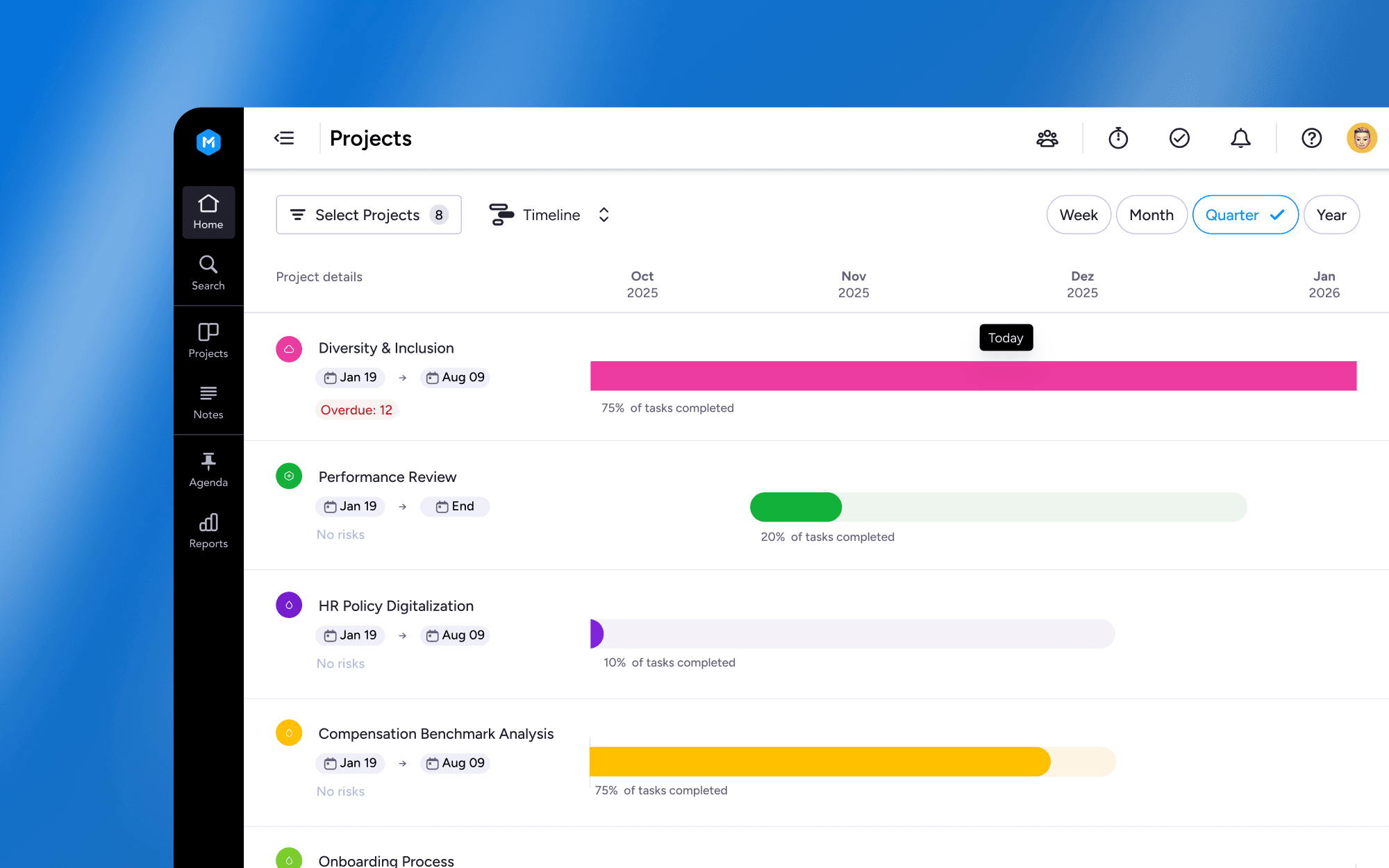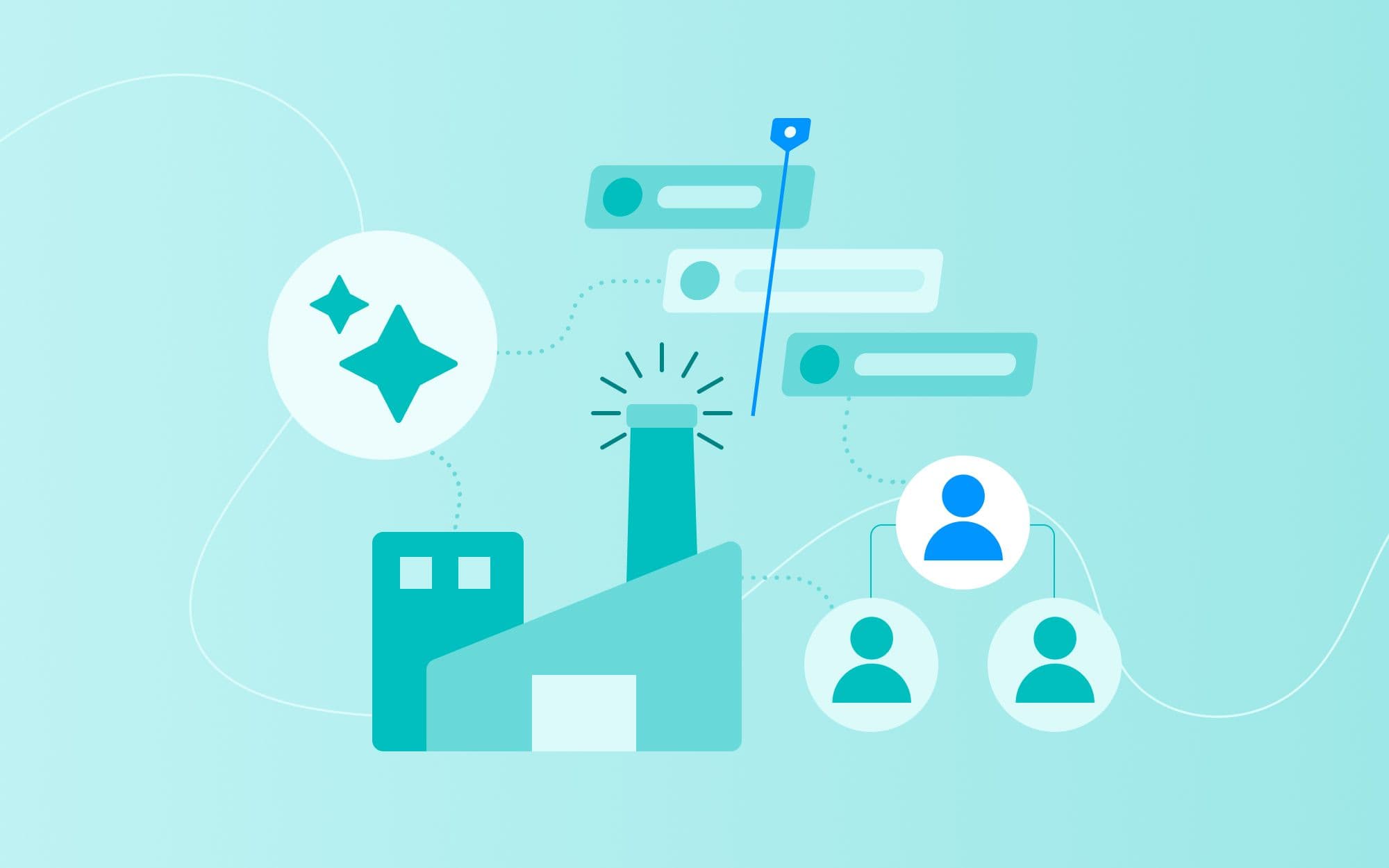If you’re not “managing” to tell the difference between task management vs. project management, you probably aren’t alone: the two share many similarities and can often be completed using the same tools. However, mastering both disciplines can ensure not only the smooth completion of projects, but also a wider culture of productivity and efficiency in your organization.
In this post, we look at:
What is project management?
What is task management?
How can MeisterTask help with project and task management?
What is project management?
“Project management is the application of processes, methods, skills, knowledge and experience to achieve specific project objectives according to the project acceptance criteria within agreed parameters. Project management has final deliverables that are constrained to a finite timescale and budget.”
Source: Association for Project Management.
Let’s start with the basics. As obvious as it may sound, project management requires a project. Although the term is often used quite loosely, most definitions confirm that a project needs to have at least three defining characteristics:
Deliverables. This is what the project should accomplish. It could be the development of a new product or marketing campaign, for example.
Start. A date or time that the work towards the project deliverables begins.
Finish. A date or time that the project deliverables will be completed by.
So what is project management? In short, the process of project management is ensuring that the deliverables are produced by the time the project finishes. While there are many ways to manage a project, the fact that deliverables must be achieved within a specific timeframe creates a question: What needs to be done, when?
Due to the complexity of ensuring that everything that needs to be done gets done on time, projects often have project managers. These people are ultimately responsible for the smooth running of the project and adapting it to any issues that arise. Most importantly, they are responsible for delegating tasks to the project team.
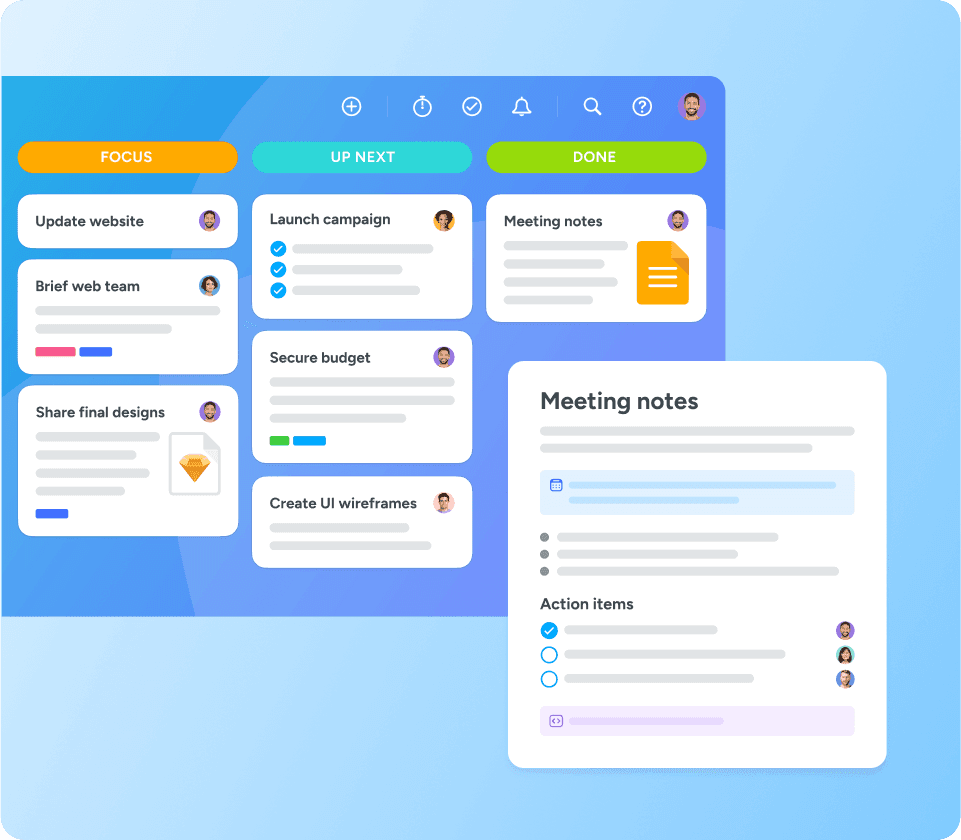
This is achieved by breaking the project deliverables down into individual tasks, which are then assigned to members of the project team. The completion of each individual task contributes to the wider project goal and ensures that team members can focus on the details effectively.
While many tasks are generally running concurrently during a project, it can be the case that the project’s to-dos are dependent on each other. For example, in a marketing project, you wouldn’t be able to complete the “send newsletter” task until the “write newsletter” task was completed. It is the connections between the tasks, working towards a wider project goal, that differentiates a project from a task and thus project management from task management.
What is task management?
So far, we’ve considered tasks as subsections of projects, but they don’t necessarily have to be. While many companies work according to project-based schedules, there are still plenty of important things to be achieved on a day-to-day level or ad-hoc level. The process of scheduling, delegating and completing these activities is known as task management.
Task management is, generally speaking, any activity that falls outside the scope of project work. Rather than via a project manager, tasks are delegated to employees by their team leads, colleagues or even independently (users assigning tasks to themselves). Examples of common non-project tasks include:
Ongoing or recurring tasks, such as scheduled inventory checks or comment moderation.
“Daily business” tasks, such as replying to emails, time-logging and other administrative activities.
“One-off” tasks, which are unconnected to other projects or workflows.
Tasks come in many forms and often in disguise. An email from a colleague with a quick “could you check this quickly?” request might look innocuous… but it’s a task. Need to write a report for your daily standup or weekly 1:1 meeting with a team member? It’s a task. As you can see, due to the very general nature of the definition of a “task”, the range of activities that fall under the umbrella of “task management” is essentially infinite. The question is, how to manage these effectively?

Many companies (and the employees within them) make a mistake when it comes to managing tasks that fall outside the scope of defined projects. Since task management is typically an informal process, the temptation is not to schedule or manage tasks according to defined structures, instead completing to-dos on an ad-hoc basis.
However, the trend towards task management systems, rather than project management software, is evidence that businesses are beginning to understand the benefits of structured processes for all types of corporate activities.
Key similarities and differences
There's a lot of overlap when comparing task management vs. project management. Now, let's break down the key similarities and differences between the two.
How task management and project management are similar
Fundamentally, task management and project management serve the same purpose. Organizations use both practices to complete workflows, maintain efficiencies and help expand their business models.
Where they differ is in how each approach is implemented.
3 key differences between task management vs. project management
Task management is used for smaller goals. Task managers help team members set their priorities so that tasks are completed on time while using a reasonable number of resources.
Project management is meant for much larger goals. Project managers look out for the needs of the entire team and align all stakeholders around shared goals, milestones and outcomes. Managers can use resources like project management templates to simplify this process.
1. Size and scope of the goal
Think of task management as a subset of project management. When assigning small goals and assignments to team members, task management is the process to move those tasks forward.
On the other hand, project management oversees the details of the larger project. You manage an entire group of people — not just team members, but stakeholders across other departments. If you're running public consultation campaigns, you'll also be responsible for managing external stakeholders.
2. Details of the assignments
For example, let's say your team has been tasked with updating the company website. You can create tasks to write new copy, design new images, upload new content, test the new updates and officially launch the new site.
Each task is assigned to a specific team member. You can use task tracker resources to assign tasks, manage workflows and ensure each milestone is achieved.
In this scenario, let's also assume that the website updates are part of a broader rebranding goal for the business. The process to implement that larger goal is an example of project management. The website refresh is one aspect of the larger project.
3. Temporary vs. continuous
Finally, another key difference between task management vs. project management is in the length of time that each practice lasts.
Project management is used to assign, manage and complete a specific project. Once the project is finished, the workflow comes to an end, and you move onto new projects.
In contrast, task management is a continuous process. Every team member has certain daily, weekly or monthly responsibilities that must be completed. These consistent tasks are ongoing and must be built into regular work schedules.
Why use MeisterTask for task management?
You’ve probably seen (or maybe even been) the colleague who starts work each morning with a desk covered with post-it notes and throws them in the waste paper basket one by one as the day progresses, disposing of all records of the task being completed. Alternatively, you may remember a time a customer followed up by phone to ask “if you saw my email from earlier”, only to realize you’d forgotten all about it.
These are examples of the inefficiencies that analog and unstructured task management can cause. Trying to memorize to-dos or manage tasks by email may work for one or two tasks, but when things get busy, these methods are unsustainable and unscalable. However, by using a dedicated task management tool like MeisterTask, you can ensure that not only do your to-dos get done, the standard and efficiency of your work is also greatly improved. Here are just a few benefits of using MeisterTask as a dedicated task management software:
Scheduling. Your tasks in MeisterTask give you the ability to set due dates that provide an overview of when each task needs to be completed. This is not just reference information for yourself, but can provide everyone in your organization with valuable information.
Everything in one place. MeisterTask collates task information – such as task descriptions, attachments and comments – on the task itself, rather than in email chains. This helps you ensure that information is centralized, updates to the task are logged in the activity stream and that attachments are available to everyone. You can even use our smart integrations to create tasks straight from your inbox.
Communication and collaboration. MeisterTask improves communication between colleagues and teams. By keeping conversations about tasks on the task itself, you can ensure that everyone who needs to be in the know, knows, which improves transparency and encourages participation.
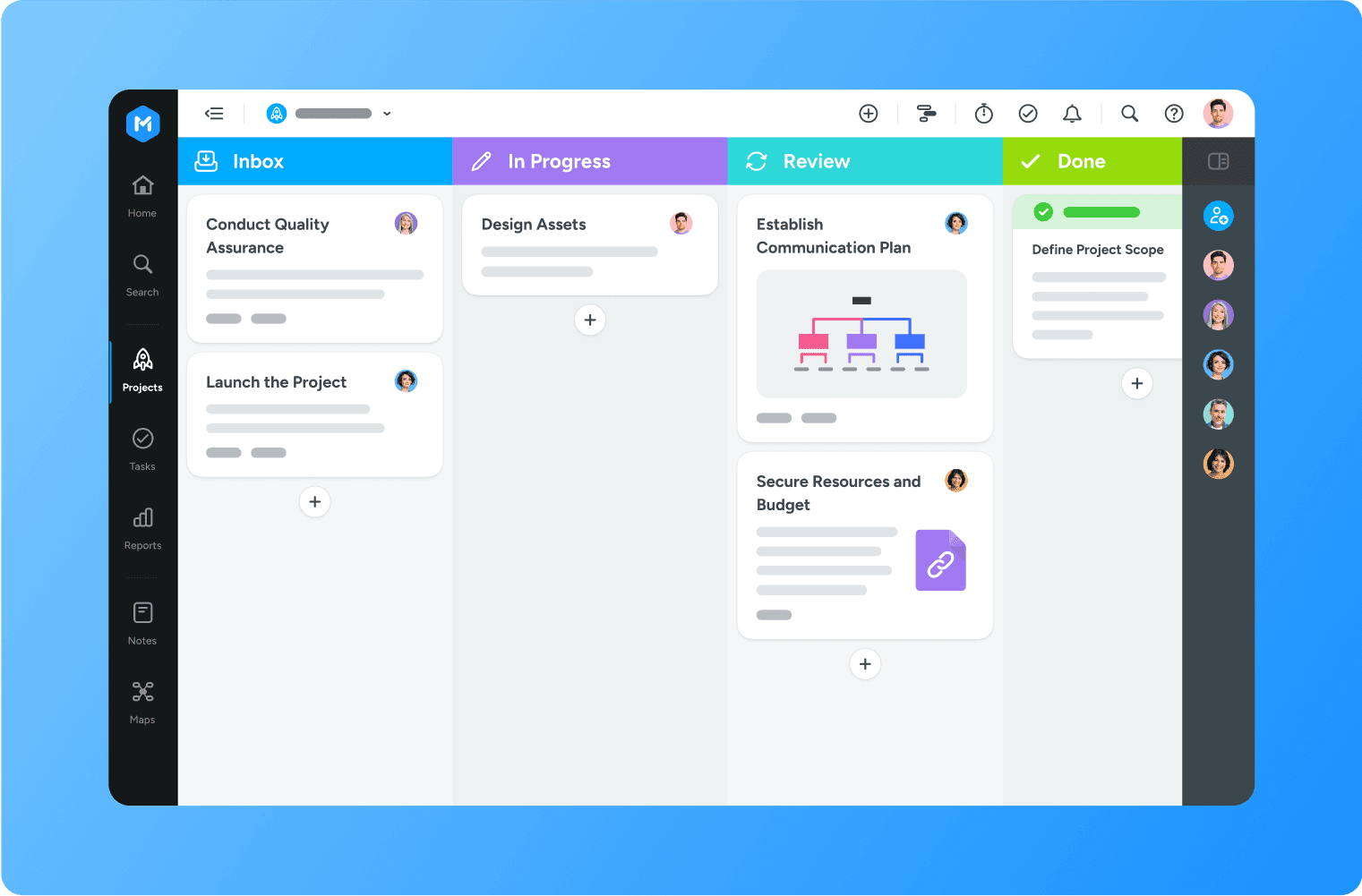
One of the reasons MeisterTask is so popular as a task management tool is its simplicity. By keeping features down to a minimum, users of all technical abilities can get on board and the process of managing work is straightforward. Still not sure? Read more about how MeisterTask can benefit your team.
Why use MeisterTask for project management?
While it is perfectly suited to task management, MeisterTask also boasts a range of features that are perfect for project management as well. The tool is a dream not only for project managers, who gain a clear understanding and overview of what tasks need to be completed and when, but provides clarity to project members too.
Here are just a few features that will help you manage projects effectively with MeisterTask.
Workload management. Keep an at-a-glance overview on what your team is doing with Timeline: color-coded Gantt-style charts that pinpoint bottlenecks and keep tasks flowing smoothly.
Automations. Do less, get more done! Let MeisterTask’s intelligent automations take the strain by completing parts of your workflow automatically. Reduce manual work and focus your team’s efforts on what really matters.
Kanban Boards. Get started immediately with our customizable, Kanban-style project boards. With unlimited sections, WIP limits, filters, tags and checklists, you can quickly power-up any project.
Integrations. Enhance your projects even further. MeisterTask integrates with dozens of other popular tools such as Slack, Zendesk, GitHub etc., linking project management smoothly into your workflow.
Reports. Gain valuable insights into your projects with MeisterTask’s customizable reports interface. Switch effortlessly between views to analyze how your team is performing.
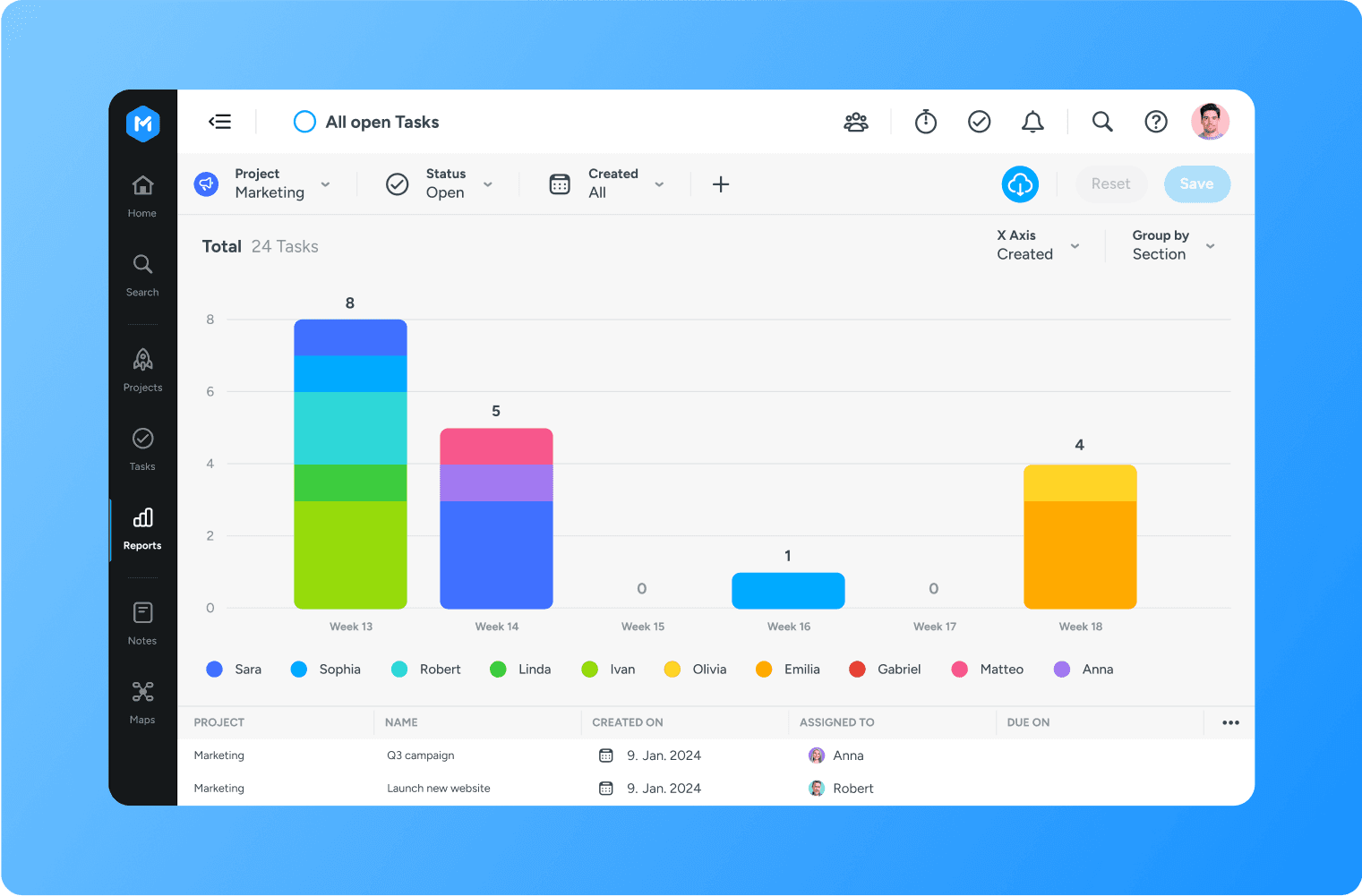
Take the leap
MeisterTask is ideal for all sorts of projects. It offers all the features you need to ensure smooth, efficient agile workflows and seamless collaboration throughout your project’s life cycle.
Plus, MeisterTask is so easy and intuitive that no onboarding is required to get you and your team started. Simply sign up, invite your team, and see how project and task management can become enjoyable, productive and profitable.
Whether you need a task or project management software, you can join millions of teams who have chosen MeisterTask as their go-to task solution.

